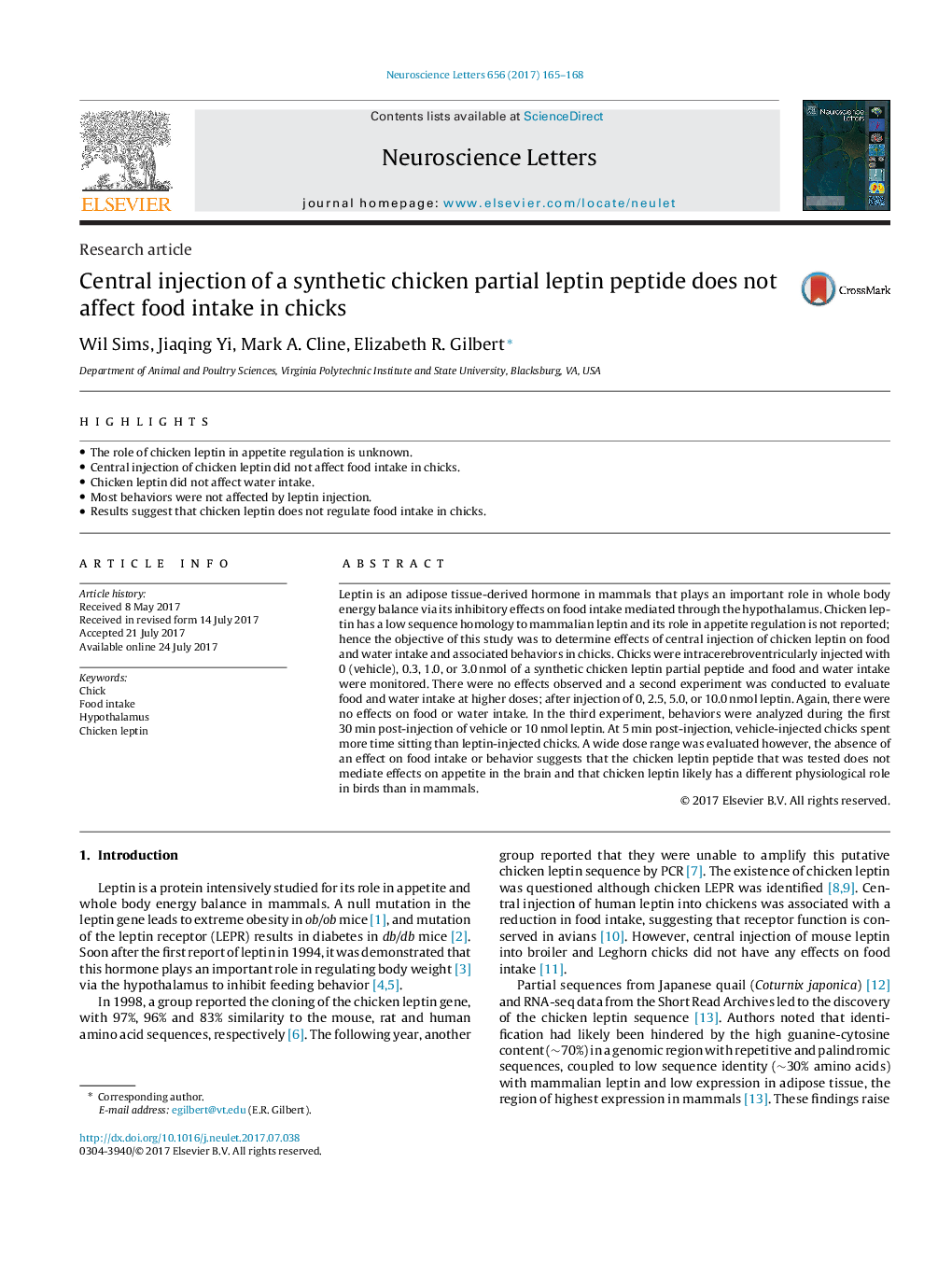| Article ID | Journal | Published Year | Pages | File Type |
|---|---|---|---|---|
| 5738294 | Neuroscience Letters | 2017 | 4 Pages |
â¢The role of chicken leptin in appetite regulation is unknown.â¢Central injection of chicken leptin did not affect food intake in chicks.â¢Chicken leptin did not affect water intake.â¢Most behaviors were not affected by leptin injection.â¢Results suggest that chicken leptin does not regulate food intake in chicks.
Leptin is an adipose tissue-derived hormone in mammals that plays an important role in whole body energy balance via its inhibitory effects on food intake mediated through the hypothalamus. Chicken leptin has a low sequence homology to mammalian leptin and its role in appetite regulation is not reported; hence the objective of this study was to determine effects of central injection of chicken leptin on food and water intake and associated behaviors in chicks. Chicks were intracerebroventricularly injected with 0 (vehicle), 0.3, 1.0, or 3.0ânmol of a synthetic chicken leptin partial peptide and food and water intake were monitored. There were no effects observed and a second experiment was conducted to evaluate food and water intake at higher doses; after injection of 0, 2.5, 5.0, or 10.0ânmol leptin. Again, there were no effects on food or water intake. In the third experiment, behaviors were analyzed during the first 30âmin post-injection of vehicle or 10ânmol leptin. At 5âmin post-injection, vehicle-injected chicks spent more time sitting than leptin-injected chicks. A wide dose range was evaluated however, the absence of an effect on food intake or behavior suggests that the chicken leptin peptide that was tested does not mediate effects on appetite in the brain and that chicken leptin likely has a different physiological role in birds than in mammals.
